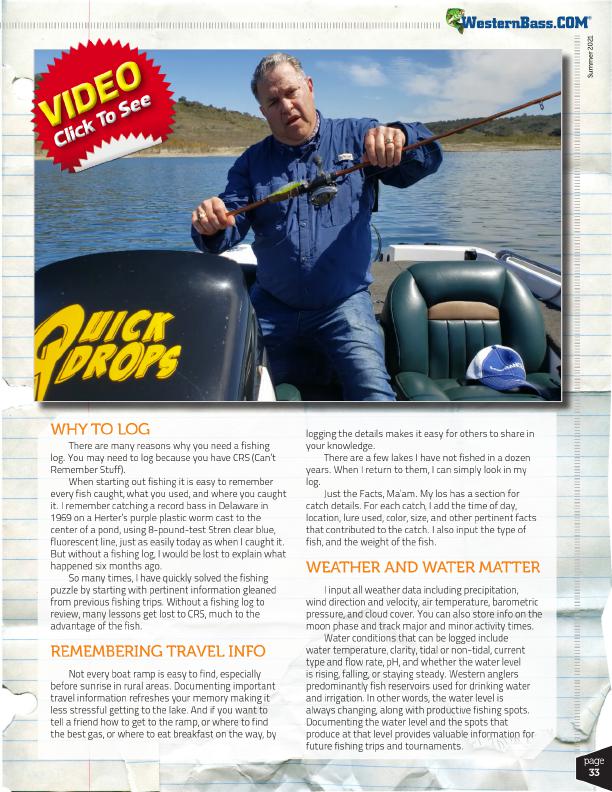
®
Summer 2021
WHY TO LOG
There are many reasons why you need a fishing log. You may need to log because you have CRS (Can’t Remember Stuff).
When starting out fishing it is easy to remember every fish caught, what you used, and where you caught it. I remember catching a record bass in Delaware in 1969 on a Herter’s purple plastic worm cast to the center of a pond, using 8-pound-test Stren clear blue, fluorescent line, just as easily today as when I caught it. But without a fishing log, I would be lost to explain what happened six months ago.
So many times, I have quickly solved the fishing puzzle by starting with pertinent information gleaned from previous fishing trips. Without a fishing log to review, many lessons get lost to CRS, much to the advantage of the fish.
REMEMBERING TRAVEL INFO
Not every boat ramp is easy to find, especially before sunrise in rural areas. Documenting important travel information refreshes your memory making it less stressful getting to the lake. And if you want to tell a friend how to get to the ramp, or where to find the best gas, or where to eat breakfast on the way, by
logging the details makes it easy for others to share in your knowledge.
There are a few lakes I have not fished in a dozen years. When I return to them, I can simply look in my log.
Just the Facts, Ma’am. My los has a section for catch details. For each catch, I add the time of day, location, lure used, color, size, and other pertinent facts that contributed to the catch. I also input the type of fish, and the weight of the fish.
WEATHER AND WATER MATTER
I input all weather data including precipitation, wind direction and velocity, air temperature, barometric pressure, and cloud cover. You can also store info on the moon phase and track major and minor activity times.
Water conditions that can be logged include water temperature, clarity, tidal or non-tidal, current type and flow rate, pH, and whether the water level is rising, falling, or staying steady. Western anglers predominantly fish reservoirs used for drinking water and irrigation. In other words, the water level is always changing, along with productive fishing spots. Documenting the water level and the spots that produce at that level provides valuable information for future fishing trips and tournaments.
page
33